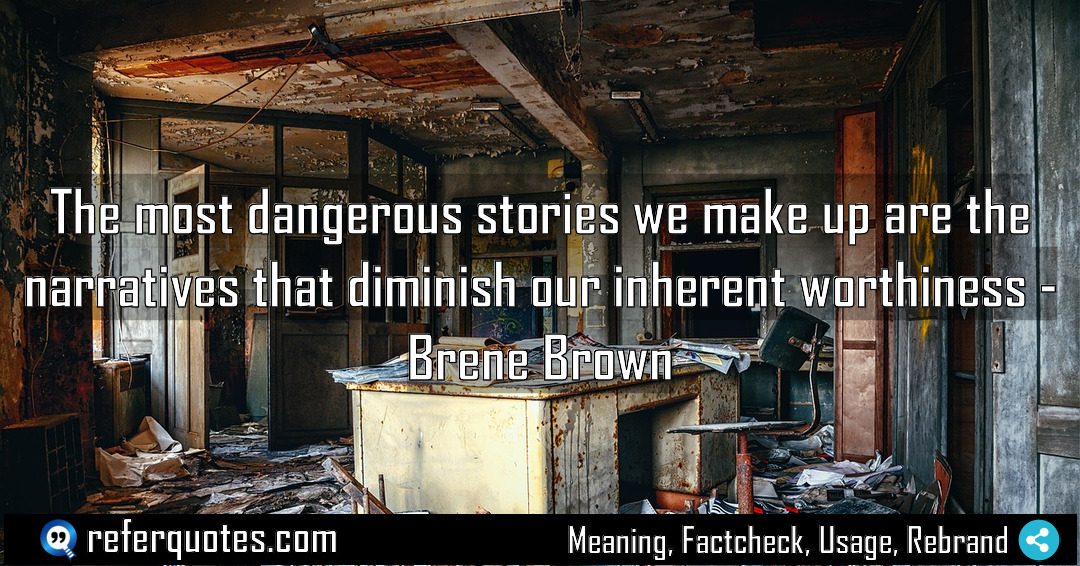You know, the most dangerous stories we make up are the ones that chip away at our self-worth. It’s not the external criticism that does the most damage, but the narratives we craft and then believe about ourselves. This is the core of Brené Brown’s powerful insight into human vulnerability and resilience.
Share Image Quote:Table of Contents
Meaning
The quote means that the most damaging lies are the ones we tell ourselves about not being good enough, smart enough, or worthy of love and belonging.
Explanation
Let me break this down. We all have this inner storyteller, right? And it’s constantly trying to make sense of our experiences—especially the painful ones, the failures, the rejections. The real danger isn’t the event itself, but the meaning we assign to it. We spin a story like, “I didn’t get the promotion because I’m not leadership material,” or “That relationship ended because I’m fundamentally unlovable.” We take a single data point and weave a whole identity around it. And the thing is, we start to believe our own press. We internalize these fictions until they feel like absolute, unshakeable truths. That’s the trap. That’s what slowly erodes our sense of worth from the inside out.
Quote Summary
| Context | Attributes |
|---|---|
| Original Language | English (3668) |
| Category | Wisdom (385) |
| Topics | belief (103), story (19), worth (9) |
| Literary Style | didactic (370) |
| Emotion / Mood | serious (155) |
| Overall Quote Score | 80 (256) |
Origin & Factcheck
This wisdom comes directly from Brené Brown’s 2015 book, Rising Strong. It’s a key concept in her research on vulnerability and wholehearted living. You won’t find it in her earlier TED Talks, and it’s often mistakenly attributed to general “self-help” jargon, but its origin is firmly in her work on how we recover from falls.
Attribution Summary
| Context | Attributes |
|---|---|
| Author | Brene Brown (257) |
| Source Type | Book (4032) |
| Source/Book Name | Rising Strong (30) |
| Origin Timeperiod | 21st Century (1892) |
| Original Language | English (3668) |
| Authenticity | Verified (4032) |
Author Bio
Dr Brene Brown is the author of books such as Daring Greatly and The Power of Vulnerability. The TED talk and Netflix production based on her research reached out to millions of audience. She researches effects of courage and vulnerability in shaping people's work and relationships. She leads the Brené Brown Education and Research Group and provides evidence-based insights into practical tools to help people train themselves
Official Website |Facebook | X | Instagram | YouTube |
Where is this quotation located?
| Quotation | The most dangerous stories we make up are the narratives that diminish our inherent worthiness |
| Book Details | Publication Year/Date: 2015; ISBN/Unique Identifier: 9780812995824; Last edition. Number of pages: 336. |
| Where is it? | Approximate page, The Rumble section |
